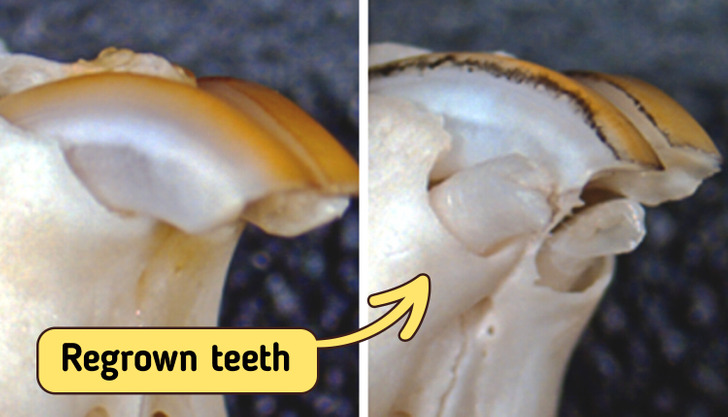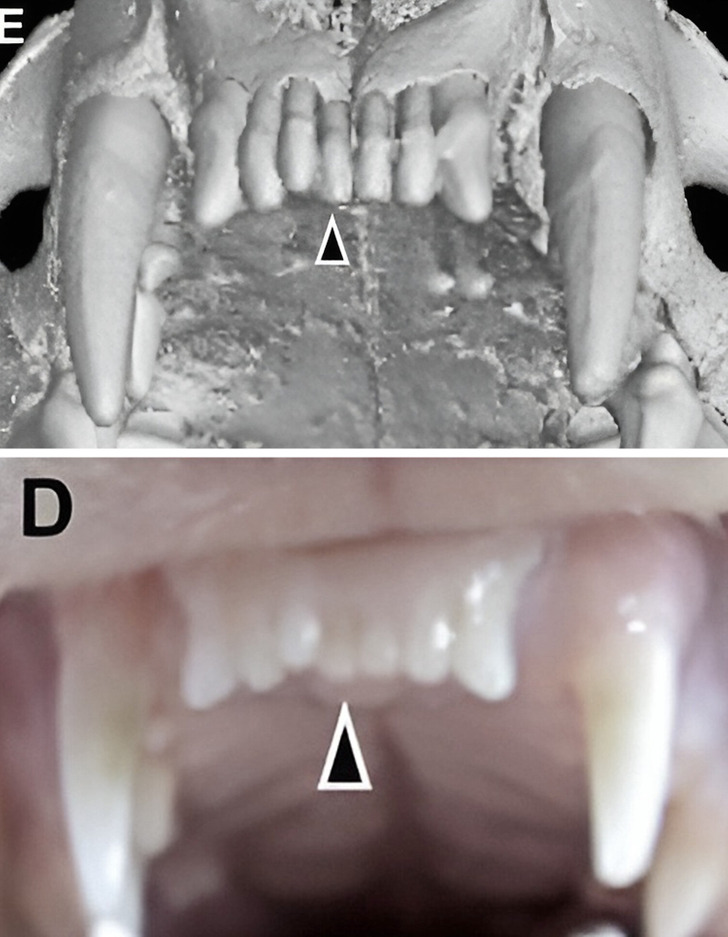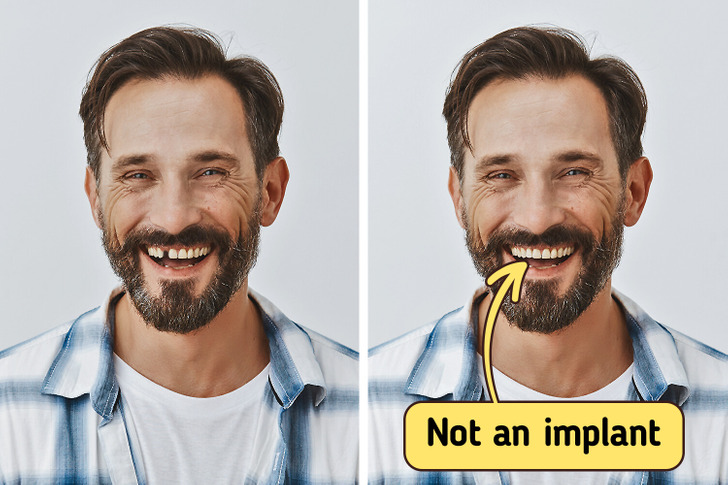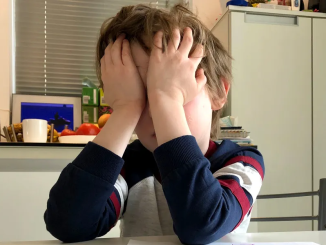The tooth fairy is a welcome guest for any child who has lost a tooth. Not only will the fairy leave a small gift under the child’s pillow, but they be assured of a replacement tooth in a few months. Unfortunately, the scenario is quite different for adults grappling with a loss of teeth. Luckily, there may be some hope thanks to a new study performed by scientists at Kyoto University and the University of Fukui.
A dental breakthrough
While the typical adult mouth houses 32 teeth, approximately 1% of the population exhibits variations of them, either possessing more or fewer teeth due to congenital conditions. Researchers have delved into the genetic factors behind cases of excessive teeth, seeking valuable insights into the potential regeneration of teeth in adults. This study is the first to show that monoclonal antibodies can help regrow teeth. It suggests a new way to treat a dental problem that currently requires implants and other artificial solutions.
A bit of science
The research team disclosed that an antibody targeting a specific gene, known as uterine sensitization-associated gene-1 (USAG-1), can induce tooth development in mice affected by tooth agenesis, a congenital condition. The findings were published in the journal, Science Advances.
As per Katsu Takahashi, a senior lecturer at the Kyoto University Graduate School of Medicine and one of the principal contributors to the study, the essential molecules crucial for the development of teeth have already been pinpointed. “The morphogenesis of individual teeth depends on the interactions of several molecules including BMP, or bone morphogenetic protein, and Wnt signaling,” says Takahashi.

On April 13, 2021, the University of Kyoto posted its first pic of newly-grown teeth in mice.
BMP and Wnt are involved in more than just tooth development; they affect the growth of organs and tissues early in the body’s development. Because drugs affecting them directly might have broad side effects, scientists are cautious. To find a potentially safer method, researchers focused on the gene USAG-1, thinking that aiming at factors countering BMP and Wnt specifically in tooth development could be more precise.
“We knew that suppressing USAG-1 benefits tooth growth. What we did not know was whether it would be enough,” added Takahashi.
The first results
Scientists looked at how different monoclonal antibodies affect USAG-1. Monoclonal antibodies are often used to treat things like cancer and arthritis and for making vaccines. Tests with this antibody showed that BMP signaling is crucial for deciding the number of teeth in mice. Also, just one treatment was enough to grow a whole tooth. Further tests confirmed these positive results in ferrets too.
“Ferrets are diphyodont animals with similar dental patterns to humans. Our next plan is to test the antibodies on other animals, such as pigs and dogs,” explained Takahashi.

Fully regrown frontal teeth in ferrets
The next steps

Now, scientists are going to test the drug on healthy adults. If that goes well, the team plans to try it on kids aged 2 to 6 with a rare tooth problem called anodontia, a genetic disorder defined as the absence of all teeth. These kids will get one shot of the drug to see if it makes their teeth grow. If everything works out, the medicine might be approved by 2030.
Takahashi sees the new medicine as an additional choice for individuals who are missing some or all of their teeth.
“The idea of growing new teeth is every dentist’s dream,” Takahashi told the Japanese newspaper, The Mainichi in June this year. “I’ve been working on this since I was a graduate student. I was confident I’d be able to make it happen.”
So hopefully, by the year 2030, humans will get a chance to have their third generation of teeth grown and say goodbye to implants. Until then, make sure to keep your teeth strong and healthy — this article will help you with that.
Preview photo credit KyotoU_News / Twitter
How should you react to survive when you suddenly fall into deep water without knowing how to swim?
Falling into deep water unexpectedly can be a terrifying experience, especially if you don’t know how to swim. Panic sets in, your instincts tell you to struggle, and before you know it, you’re exhausted and in real danger. However, survival in such a situation is entirely possible if you remain calm and follow a set of simple but life-saving steps.
According to Dr. Nash and his team of researchers, the key to survival is overcoming fear instincts and following five crucial steps. These steps are designed to help anyone—regardless of swimming ability—stay afloat, breathe, and increase their chances of rescue. Let’s dive into these life-saving techniques.
1. Stay Calm and Relax to Achieve Natural Buoyancy

The first and most critical step is to fight the urge to struggle. Many people instinctively flail their arms and legs in a desperate attempt to stay above water. However, this only wastes energy and causes faster exhaustion.
Instead, take a deep breath and allow your body to relax. When you stop panicking, your body will naturally float closer to the water’s surface. The human body is slightly less dense than water, meaning that if you remain still, you can achieve buoyancy without much effort.
2. Tilt Your Head Back to Keep Your Airway Clear
Once you’ve calmed yourself and started floating, you need to ensure that you can breathe. The best way to do this is to tilt your head back, keeping your face above the water.
Try not to move too much, as sudden movements can make you sink slightly. If you feel yourself going under, resist the urge to panic—simply take a deep breath, relax your muscles, and allow yourself to rise again.
Video : How to Survive if You Fall in Water – Prevent Yourself From Drowning – Survival Techniques
3. Breathe Slowly and Avoid Inhaling Water
Now that your nose and mouth are above water, it’s time to focus on breathing. Many people instinctively gasp for air, but this can lead to choking if water splashes into your mouth. Instead, practice controlled breathing:
- Exhale slowly through your nose to clear any water that may have entered.
- Inhale through your mouth in a controlled manner.
- If a wave covers your face, hold your breath momentarily, then resume normal breathing.
Even experienced swimmers can struggle if they inhale water, so maintaining steady breathing is crucial for survival.
4. Move Your Arms and Legs Gently to Stay Afloat
At this point, you should be floating on the water’s surface and breathing steadily. The next step is to use gentle, controlled movements to maintain your position.
- Use slow arm movements: Move your arms in a sweeping motion, like you’re making small circles in the water. This will help you stay afloat without expending too much energy.
- Legs should remain still if you don’t know how to kick properly: If you’re unsure how to tread water, keeping your legs still is often better than kicking randomly. Let them sink slightly while focusing on keeping your upper body above water.
The key here is to avoid frantic movements—slow and deliberate strokes will keep you afloat much longer.

5. Look for Rescue Opportunities
Once you’ve gained control of your breathing and movements, your next priority is finding a way to safety.
- Scan your surroundings – Look for anything floating that you can grab onto, such as a buoy, a log, or even a piece of debris. Holding onto something will help you conserve energy.
- Check your distance from the shore – If you can see land, assess whether it’s possible to move toward it using slow, steady movements.
- Signal for help – If there are people nearby, shout for help. However, conserve energy by calling out only when necessary.
If you’re caught in a strong current, do not try to swim directly against it—this will only tire you out. Instead, swim diagonally at an angle to gradually move out of the current’s pull.
What to Do If You See Someone Drowning
If you witness someone struggling in deep water, it’s important to act quickly but safely. Jumping in to rescue them may seem like the right thing to do, but unless you’re a trained rescuer, it could put both of you at risk.
Instead, follow these steps:
- Shout instructions – Encourage the person to follow the survival steps above. Remind them to relax, tilt their head back, and float.
- Find a flotation device – If possible, throw a life jacket, a rope, or any floating object they can grab onto.
- Call emergency services – Immediately contact your local emergency number and provide details of the situation.
Video : How to get over fear of water – Feel safe on the deep end
Why Staying Calm is the Key to Survival
Many drowning incidents occur not because the victim physically sinks, but because they panic and exhaust themselves. Learning how to override panic instincts and follow a survival routine can mean the difference between life and death.
Dr. Nash explains:
“Whether you’re planning a vacation, taking a walk near a river, or going for a swim, knowing how to stay safe in water is crucial. These simple survival techniques can save your life or someone else’s.”
Final Thoughts
Surviving a fall into deep water without knowing how to swim is possible—but only if you remain calm and follow the right steps. By floating, maintaining steady breathing, and making slow movements, you can conserve energy and increase your chances of rescue.
Now that you know these survival strategies, share them with your friends and family. You never know when this knowledge might save a life!



Leave a Reply